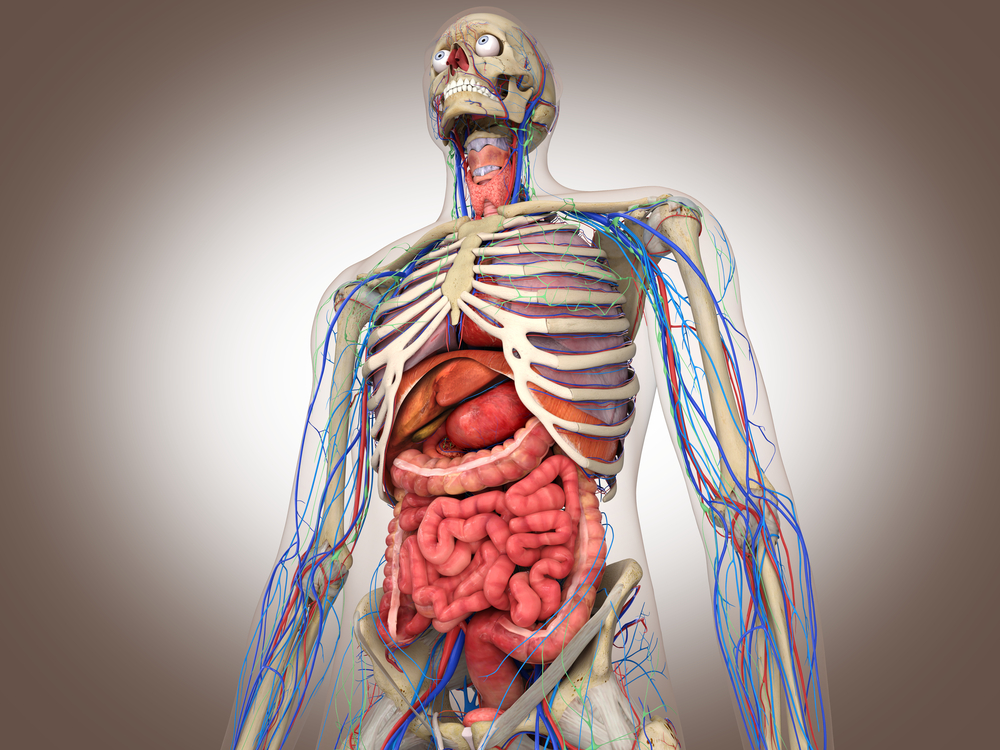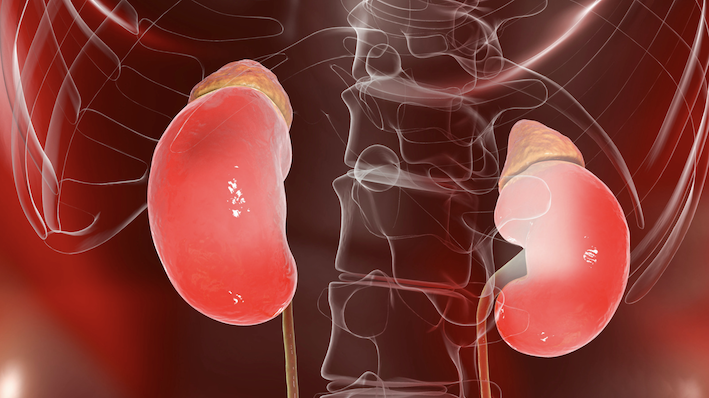Internal medicine is the cornerstone of healthcare, a broad medical specialty that focuses on the prevention, diagnosis, and treatment of diseases affecting the body’s internal organs, which typically do not require surgical intervention.
An internist faces a unique challenge in managing a wide and complex range of conditions, from common chronic diseases such as diabetes and high blood pressure to infectious diseases, heart diseases, and even autoimmune diseases.
A deep understanding of the causes, mechanisms, and progression of these diseases is crucial for developing effective and evidence-based treatment plans.
Liva Hospital adopts evidence-based global protocols for examining these conditions, aiming to provide personalized treatment for each patient.

Gastrointestinal Diseases
The gastrointestinal system is a complex network responsible for digesting food, absorbing nutrients, and eliminating waste.
When this system is disrupted, a wide range of diseases can arise that affect the patient’s quality of life. Gastroenterologists, a branch of internal medicine, specialize in diagnosing and treating these conditions.
- Gastroesophageal Reflux Disease (GERD): Occurs when stomach acid frequently flows back into the esophagus, causing heartburn, difficulty swallowing, and sometimes esophageal damage.
Treatment relies on lifestyle changes (avoiding trigger foods, not eating before bed), acid-suppressing medications (such as PPIs – Proton Pump Inhibitors), and in rare cases, surgery. - Peptic Ulcer Disease: Open sores that form on the inner lining of the stomach, upper small intestine, or esophagus.
Often caused by Helicobacter pylori (H. pylori) infection or prolonged use of non-steroidal anti-inflammatory drugs (NSAIDs). Treatment includes antibiotics to eradicate H. pylori and acid-suppressing medications. - Irritable Bowel Syndrome (IBS): A chronic disorder affecting the large intestine, causing abdominal pain, bloating, diarrhea, or constipation.
IBS treatment is multifaceted, including dietary modifications (such as a Low FODMAP diet), stress management, and medications to control symptoms. - Inflammatory Bowel Disease (IBD): Includes Crohn’s Disease and Ulcerative Colitis. These are chronic diseases that cause chronic inflammation in the digestive tract.
Treatment relies on anti-inflammatory drugs, immunosuppressants, and in severe cases, surgery. - Viral Hepatitis: Such as hepatitis B and C, which can cause chronic liver damage leading to cirrhosis or liver cancer.
Antiviral treatments have revolutionized the treatment of these diseases, with some (especially for C) achieving complete cure. - Gallbladder Diseases: Such as gallstones and cholecystitis (inflammation of the gallbladder). May require surgical removal of the gallbladder (cholecystectomy).
Accurate diagnosis of these diseases is crucial and includes clinical examination, blood tests, imaging tests (such as endoscopy, ultrasound, CT scan), and sometimes, tissue biopsies.
All treatment plans aim to relieve symptoms, prevent complications, and improve the patient’s quality of life.
Cardiovascular Diseases
Cardiovascular diseases are the leading cause of death worldwide and include a wide range of conditions affecting the heart and blood vessels.
Cardiologists, who are internists, specialize in diagnosing and treating these complex diseases that require comprehensive and often lifelong care.
Common types of cardiovascular diseases:
- Hypertension (High Blood Pressure): Known as the silent killer because it often has no obvious symptoms, but it significantly increases the risk of heart disease and stroke.
Treatment relies on lifestyle changes (low-salt diet, exercise, maintaining a healthy weight), and antihypertensive medications (such as diuretics, ACE inhibitors, beta-blockers). - Coronary Artery Disease (CAD): Occurs when fatty plaques build up in the coronary arteries that supply the heart muscle, leading to narrowing and reduced blood flow. It can cause angina (chest pain) or a heart attack.
Treatment includes lifestyle changes, medications to lower cholesterol and blood pressure and relieve symptoms (such as nitrates), and in some cases, interventions such as cardiac catheterization and stent placement or Coronary Artery Bypass Graft (CABG) surgery. - Heart Failure: A condition in which the heart cannot pump blood efficiently enough to meet the body’s needs.
It can cause shortness of breath, fatigue, and swelling. Treatment focuses on medications (such as ACE inhibitors, beta-blockers, diuretics), lifestyle changes, and in advanced cases, may require pacemakers, ventricular assist devices, or even heart transplant. - Arrhythmias (Heart Rhythm Disorders): Abnormal heart rhythms, such as atrial fibrillation. They can cause palpitations, dizziness, or fainting. Treatment includes medications to control heart rate or rhythm, radiofrequency ablation techniques, or pacemaker implantation.
- Peripheral Artery Disease (PAD): Narrowing of the arteries supplying the limbs, especially the legs. It causes pain when walking and skin changes. Treated with lifestyle changes, medications, and in some cases, vascular interventions.
- Stroke: Occurs when blood flow to part of the brain is interrupted, leading to brain cell death. Prevention through control of risk factors (blood pressure, diabetes, cholesterol) is crucial.
Endocrine Diseases
The endocrine glands are a complex network of glands that produce hormones, which are chemicals that regulate almost every function in the body, from growth and metabolism to sleep and mood.
When the balance of these hormones is disturbed, a wide range of diseases that affect overall health arise. Endocrinologists, who are internists, specialize in diagnosing and treating these disorders.
Common types of endocrine and metabolic diseases:
- Diabetes Mellitus: Diabetes is one of the most common endocrine diseases, characterized by high blood sugar levels either due to insufficient insulin production (Type 1) or the body’s cells not responding effectively to insulin (Type 2).
- Type 1: Requires lifelong insulin treatment.
- Type 2: Treated with lifestyle changes (diet, exercise), oral medications, and in some cases, insulin. The goal is to control blood sugar levels to prevent serious complications such as heart disease, kidney failure, and nerve and eye damage.
- Thyroid Disorders: The thyroid gland produces hormones that regulate the body’s metabolism.
- Hypothyroidism: When the gland produces too little hormone, causing fatigue, weight gain, and depression. Treated with hormone replacement (levothyroxine).
- Hyperthyroidism: When the gland produces too much hormone, causing weight loss, nervousness, and heart palpitations. Treated with antithyroid drugs, radioactive iodine, or surgery.
- Osteoporosis: A disease that makes bones weak and brittle, increasing the risk of fractures. It is associated with hormonal disorders (especially estrogen deficiency after menopause).
Treatment includes calcium and vitamin D supplements, and medications that build bone or reduce its deterioration (such as bisphosphonates). - Polycystic Ovary Syndrome (PCOS): A common hormonal disorder in women of childbearing age, causing irregular menstrual cycles, acne, excess hair growth, and fertility problems.
Treated with lifestyle changes, medications to regulate hormones, and medications to increase insulin sensitivity (such as metformin). - Adrenal Gland Disorders: Such as Addison’s disease (cortisol deficiency) or Cushing’s syndrome (excess cortisol), both of which require careful hormone management.
- Pituitary Gland Disorders: The pituitary gland is the “master gland” that controls many other glands.
Pituitary tumors or deficiencies can affect the production of growth hormones, thyroid hormones, or gonadal hormones.
Kidney Diseases
The kidneys are essential organs in the body, acting as natural filters to remove waste and toxins from the blood, regulate fluid and electrolyte balance, produce hormones that control blood pressure, form red blood cells, and maintain bone health.
When kidney function declines, these harmful substances accumulate in the body, leading to a range of serious health problems. Nephrologists (kidney disease specialists), who are internists, specialize in diagnosing and treating these conditions.
Common types of kidney diseases:
- Chronic Kidney Disease (CKD): A gradual and progressive decline in kidney function over months or years. Often caused by diabetes, uncontrolled high blood pressure, glomerulonephritis, or polycystic kidney disease.
- Acute Kidney Injury (AKI): A sudden and rapid loss of kidney function, often reversible if treated promptly.
It may be caused by severe dehydration, kidney-damaging medications, or urinary tract obstruction.
Treatment includes addressing the underlying cause, supporting kidney function (sometimes with temporary dialysis), and adjusting medications. - Kidney Stones: Solid deposits that form in the kidneys and can cause severe pain when passing through the urinary tract.
Treatment depends on the size and location of the stone. It may include drinking plenty of fluids, medications to relieve pain or help the stone pass, and in larger cases, procedures such as lithotripsy (shock wave therapy) or endoscopic surgery. - Urinary Tract Infections (UTIs): Bacterial infections affecting any part of the urinary system, including the kidneys (pyelonephritis). Treated with antibiotics.
- Glomerulonephritis: A group of diseases that cause inflammation in the tiny filters of the kidneys (glomeruli), leading to their damage and loss of function. Treatment depends on the underlying cause and may include immunosuppressive drugs.

Blood and Immune System Diseases
Blood is a complex vital system that flows throughout the body, responsible for transporting oxygen and nutrients, removing waste, and fighting infections through the immune system.
When diseases affect blood cells, clotting proteins, or components of the immune system, a wide range of conditions that affect overall health can arise.
Hematologists (blood disorder specialists) and Immunologists, who are internists, specialize in diagnosing and treating these disorders.
Common types of blood and immune system diseases:
- Anemia (Anemia): A condition characterized by a deficiency of healthy red blood cells or hemoglobin, which reduces the blood’s ability to carry oxygen.
- Iron-deficiency anemia: The most common, treated with iron supplements and dietary modification.
- Sickle Cell Anemia: A genetic disorder that causes abnormal red blood cells. Requires pain management, infection prevention, and in some cases, blood transfusions or bone marrow transplant.
- Aplastic Anemia: Bone marrow failure to produce blood cells. Treated with immunosuppressants or bone marrow transplant.
- Clotting Disorders:
- Hemophilia: A genetic disorder that prevents blood from clotting properly. Treated by replacing the deficient clotting factor.
- Deep Vein Thrombosis (DVT) and Pulmonary Embolism (PE): Blood clots that form in veins (especially in the legs) and can travel to the lungs. Treated with anticoagulants (blood thinners).
- Blood Cancers: Leukemia, Lymphoma, and Multiple Myeloma are types of cancer that affect blood cells, bone marrow, or the lymphatic system.
Treatment plans depend on the type and stage of cancer and include chemotherapy, radiation therapy, targeted therapy, immunotherapy, and in some cases, stem cell transplant (bone marrow). - Autoimmune Disorders: Occur when the body’s immune system mistakenly attacks its own tissues. They can affect multiple organs.
- Rheumatoid Arthritis (RA): Chronic inflammation affecting the joints.
- Systemic Lupus Erythematosus (SLE): A chronic disease that can affect joints, skin, kidneys, brain, and other organs.
- Multiple Sclerosis (MS): A disease affecting the brain and spinal cord.
- Diagnosis: Relies on clinical examination, blood tests (antibodies, inflammation markers), and in some cases, imaging tests or biopsies.
- Treatment: Aims to suppress the immune system to reduce inflammation and tissue damage. Includes immunosuppressants, corticosteroids, and targeted biological therapies.
- Immunodeficiency: Weakness in the immune system that makes the body susceptible to recurrent infections.
It can be inherited (e.g., severe combined immunodeficiency) or acquired (e.g., acquired immunodeficiency syndrome – AIDS).
Treatment depends on the cause and may include intravenous immunoglobulin (IVIG) replacement or treatment of specific infections.
Infectious Diseases
Infectious diseases are ongoing health challenges, where microorganisms such as bacteria, viruses, fungi, and parasites cause a wide range of illnesses, from common colds to life-threatening diseases.
Infectious disease specialists, who are internists, specialize in diagnosing, treating, and preventing these diseases, and often work on the front lines in combating epidemics and antibiotic resistance.
Common types of infectious diseases:
- Respiratory Tract Infections:
- Influenza (Flu): A viral infection affecting the respiratory system, treated with antivirals in some cases, and rest and fluids.
- Pneumonia: An infection affecting the lungs, which can be bacterial, viral, or fungal. Treated with antibiotics (for bacteria) or antivirals.
- Tuberculosis (TB): A serious bacterial infection that primarily affects the lungs, treated with a long course of multiple antibiotics.
- Gastrointestinal Infections:
- Food Poisoning: Often caused by bacteria or viruses transmitted through contaminated food. Treated with rest, fluids, and sometimes antibiotics.
- Viral Hepatitis: Viral infections affecting the liver (A, B, C, D, E). Some are acute and short-lived, while others are chronic (B and C) and can lead to cirrhosis or liver cancer. Treated with antivirals.
- Urinary Tract Infections (UTIs): Bacterial infections affecting the urinary system. Treated with antibiotics.
- Skin and Soft Tissue Infections:
- Cellulitis: A bacterial infection of the skin and subcutaneous tissues. Treated with antibiotics.
- Impetigo: A common bacterial skin infection, especially in children. Treated with topical or oral antibiotics.
- Sexually Transmitted Infections (STIs): Such as chlamydia, gonorrhea, syphilis, and human immunodeficiency virus (HIV).
Require early diagnosis and appropriate treatment (antibiotics for bacterial, antivirals for viral) to prevent complications and limit spread. - Sepsis: The body’s overwhelming response to infection, leading to tissue and organ damage. It is a medical emergency that requires immediate treatment with antibiotics, fluids, and organ support.
- Tropical Diseases: Such as malaria, dengue fever, and chikungunya. Treated with specific medications for each disease and may require supportive care.

Rheumatic Diseases
Rheumatic diseases are a wide group of conditions that affect joints, muscles, ligaments, and tendons, and sometimes internal organs.
These diseases are often chronic and characterized by inflammation, pain, and stiffness, and can lead to permanent joint damage if not treated effectively.
Rheumatologists, who are internists, specialize in diagnosing and treating these complex disorders that often involve immune system dysfunction.
Common types of rheumatic diseases:
- Rheumatoid Arthritis (RA): A chronic autoimmune disease in which the immune system attacks the lining of the joints, causing painful inflammation, swelling, and erosion of cartilage and bone.
It often affects the small joints in the hands and feet symmetrically.- Treatment: Aims to relieve pain and inflammation, prevent joint damage, and improve function.
Includes NSAIDs (non-steroidal anti-inflammatory drugs), DMARDs (disease-modifying antirheumatic drugs) such as methotrexate, and targeted biological therapies that suppress specific parts of the immune system.
- Treatment: Aims to relieve pain and inflammation, prevent joint damage, and improve function.
- Osteoarthritis (OA): Also known as degenerative arthritis, it is the most common form of arthritis.
It occurs when the protective cartilage that covers the ends of bones gradually wears away. It often affects weight-bearing joints such as the knees and hips, as well as the hands and spine.- Treatment: Focuses on pain relief and improving function. Includes lifestyle changes (weight loss, appropriate exercise), pain relievers, physical therapy, and in severe cases, intra-articular injections, or surgery (such as joint replacement).
- Systemic Lupus Erythematosus (SLE): A chronic autoimmune disease that can affect many body systems, including joints, skin, kidneys, heart, lungs, and brain.
- Treatment: Aims to suppress the immune system, reduce inflammation, and prevent organ damage. Includes corticosteroids, antimalarial drugs (such as hydroxychloroquine), immunosuppressants, and biological therapies.
- Gout: A type of acute and painful arthritis caused by the accumulation of uric acid crystals in the joints (often the big toe).
- Treatment: For acute pain, NSAIDs and colchicine are used. To prevent future attacks, medications to lower uric acid levels (such as allopurinol) are used.
- Ankylosing Spondylitis (AS): A form of arthritis that primarily affects the spine, causing pain and stiffness. It can lead to fusion of the vertebrae.
- Treatment: Includes NSAIDs, physical therapy, and in more severe cases, biological therapies.
- Fibromyalgia: A chronic widespread pain syndrome characterized by general muscle and joint pain, fatigue, sleep problems, and cognitive issues.
- Treatment: Focuses on symptom management and includes medications (such as antidepressants, pain relievers), physical therapy, exercise, and cognitive-behavioral therapy.
Early diagnosis of rheumatic diseases is vital to prevent permanent joint and organ damage.
Diagnosis relies on clinical examination, blood tests (looking for inflammation markers and antibodies), and imaging tests (such as X-rays, MRI).
Treatment plans aim to control inflammation, relieve pain, preserve joint function, and improve the patient’s quality of life.
Conclusion
The field of internal medicine is indeed the backbone of healthcare, covering a wide spectrum of diseases that affect every vital system in the human body.
From digestive challenges to hormonal disorders, from complex heart diseases to struggles with infections and immune dysfunctions, the internist stands at the forefront of diagnosis and treatment.
The tremendous scientific progress in this field, both in understanding disease mechanisms and in developing drugs and diagnostic techniques, has revolutionized our ability to manage these conditions and improve patient outcomes.
However, the success of treatment does not depend solely on medication or procedure, but on a comprehensive approach that includes accurate diagnosis, a personalized treatment plan, psychological support, and the importance of patient adherence.
Advanced healthcare centers, such as Liva Hospital in Turkey, play a pivotal role in providing this integrated care, combining specialized medical expertise, modern technology, and a commitment to delivering the best possible care.
Frequently Asked Questions
What is the difference between a general practitioner and an internist?
A general practitioner is a doctor who provides comprehensive primary healthcare for a wide range of conditions. An internist, on the other hand, is a specialist in diagnosing and treating diseases affecting the body’s internal organs.
When should I see an internist instead of a general practitioner?
You should see an internist if you are experiencing persistent, unexplained, or complex symptoms affecting your internal organs, or if you have chronic diseases such as diabetes or high blood pressure that require specialized management.
Are all internal diseases chronic?
No, not all internal diseases are chronic. For example, many infectious diseases (such as influenza or urinary tract infections) are acute and curable.
Can internal diseases be completely cured?
It depends on the type of disease. Some internal diseases, such as most bacterial infections or peptic ulcers caused by H. pylori, can be completely cured. However, many chronic diseases (such as diabetes, high blood pressure, autoimmune diseases) cannot be completely cured.
What is the role of lifestyle in the treatment of internal diseases?
Lifestyle plays a crucial role in the prevention and management of many internal diseases, especially chronic ones. This includes a healthy diet, regular physical activity, maintaining a healthy weight, quitting smoking, and stress management.
How can I choose a good internist?
You can start by asking for recommendations from your general practitioner or trusted friends and family. Look for doctors with experience in your specific disease area, who have a proven track record of good outcomes.


